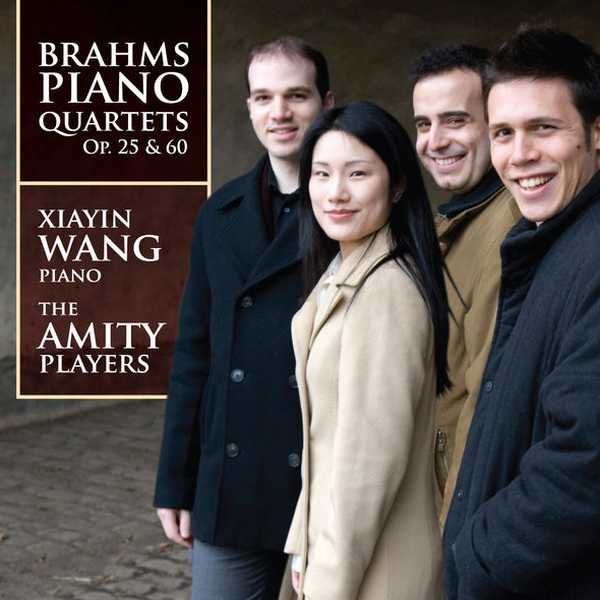
Composer: Johannes Brahms
Performer: Xiayin Wang, Amity Players
Format: FLAC (tracks)
Label: Marquis Classics
Release: 2008
Size: 323 MB
Recovery: +3%
Scan: cover
Piano Quartet Op.25
01. Allegro
02. Intermezzo Allegro
03. Andante Con Moto
04. Rondo Alla Zingarese Preso
Piano Quartet Op.60
05. Allegro Non Troppo
06. Scherzo Allegro
07. Andante
08. Finale Allegro Comodo
Coming off a highly satisfying and successful debut in her first Marquis Classics release, Introducing Xiayin Wang, pianist Xiayin Wang needn’t have worried about the “sophomore jinx,” which primarily affects popular music artists and not the classical ones. The flavor of the month factor is not such a big deal in the classics; fans tend to be devoted for good for the run of an artist’s recordings, or simply are not fans of a given artist. Nevertheless, one might get the impression that perhaps Wang was looking to sidestep the sophomore jinx — much as Mahler avoided the fatal ninth symphony through composing Das Lied von der Erde instead — through making her second Marquis release a chamber album rather than another solo outing as her first had been. This Marquis’ effort features Wang in the first and third Brahms piano quartets in collaboration with the Amity Players, a Canadian trio of émigrés who, like Wang, are young and precociously gifted. One could not typify these performances as being “pretty” sounding Brahms; although Wang maintains a fairly even-keel approach to the piano parts with an elegant touch and cleanly described lines, the Amity Players fairly dig into the music with a great deal of intensity and drama. The energy level in this recording is so high that at times you suddenly realize the piano is being carried along with it, Wang breaking out of her role as musical referee to dive into the game. While such an approach is in keeping with the historic information we have about the background of these works, some established devotees of Brahms would not be used to hearing his chamber music played quite this way. To others — especially those who come to Brahms without preconceived notions — this will be a revelation, and it is certainly never boring, even as it may not seem as deep and expressive a Brahms performance as some owing to its quick tempi and hell-bent-for-leather zealousness. Nevertheless, this is passionate, highly engaging music-making that should satisfy most who take it on.